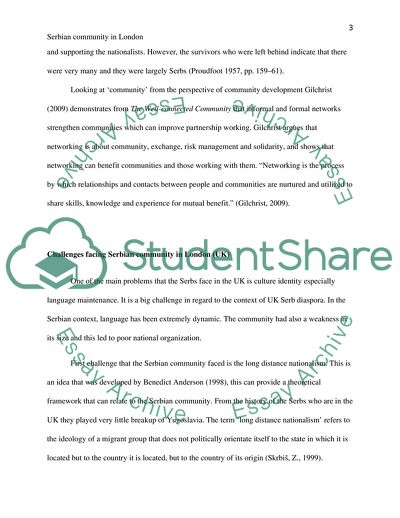Cite this document
(Serbian Community in London Outline Example | Topics and Well Written Essays - 2000 words, n.d.)
Serbian Community in London Outline Example | Topics and Well Written Essays - 2000 words. https://studentshare.org/sociology/1818495-report-on-a-serbian-community-in-london-uk-and-actual-or-potential-interventions-2000-words
Serbian Community in London Outline Example | Topics and Well Written Essays - 2000 words. https://studentshare.org/sociology/1818495-report-on-a-serbian-community-in-london-uk-and-actual-or-potential-interventions-2000-words
(Serbian Community in London Outline Example | Topics and Well Written Essays - 2000 Words)
Serbian Community in London Outline Example | Topics and Well Written Essays - 2000 Words. https://studentshare.org/sociology/1818495-report-on-a-serbian-community-in-london-uk-and-actual-or-potential-interventions-2000-words.
Serbian Community in London Outline Example | Topics and Well Written Essays - 2000 Words. https://studentshare.org/sociology/1818495-report-on-a-serbian-community-in-london-uk-and-actual-or-potential-interventions-2000-words.
“Serbian Community in London Outline Example | Topics and Well Written Essays - 2000 Words”. https://studentshare.org/sociology/1818495-report-on-a-serbian-community-in-london-uk-and-actual-or-potential-interventions-2000-words.


